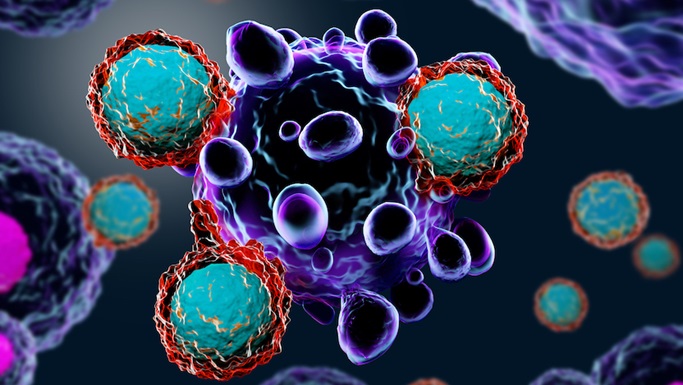


Stay tuned and follow the latest developments and news in Molecular Oncology.

In a rapidly developing technological age, a deeper knowledge of the biology of a person’s body enables a personalised approach to a variety of diseases, such as cancer, giving a new dimension to modern medicine.
It is now well known that cancer is not a single disease, but a broad group of diseases with similar characteristics. This is why the claim of a “known cure” is misplaced, as each case requires a unique therapeutic approach that is shaped by mapping the unique gene characteristics of each patient.
In the past, it was sufficient to identify the type of disease in order to give a specific treatment that was assigned to that disease (e.g. cancer). Over time, however, this approach has become incomplete and ineffective, resulting in the need to take multiple factors into account in the management of each patient, such as individual and family history of a disease, age, gender and other environmental factors that influence a disease.
Added to this is the need to collect personal gene characteristics of each patient for a completely personalised approach to a disease. The rapid development of science now puts the patient under the microscope and develops targeted preventive, diagnostic and therapeutic strategies based on the unique genetic profile of each patient. It thoroughly studies the variability and diversity of gene expression and produces findings on disease susceptibility, hereditary predisposition and response to medication.
This is achieved by collecting and analysing a large volume of complex data using cutting-edge technology and through complex algorithms, providing valuable information in the hands of physicians that is a weapon for proper monitoring and healthcare. Simply put, by analysing the gene characteristics of each patient, the treating physician is able to administer a treatment according to the patient’s unique gene mutations and needs. But personalised medicine is not just about medicines, but about the wider context of good healthcare, from research to care and proper monitoring of patients.
Personalised medicine is a reality and a standard practice of health care for cancer patients today, requiring the continuous evolution and upgrading of global health systems, their adaptability to modern technological data as well as their wider collaboration with new scientific fields outside the exclusively medical (biotechnology, molecular genetics, bioinformatics, artificial intelligence, etc.) with the central aim of improving the quality of life of patients and the elimination of multiple diseases.